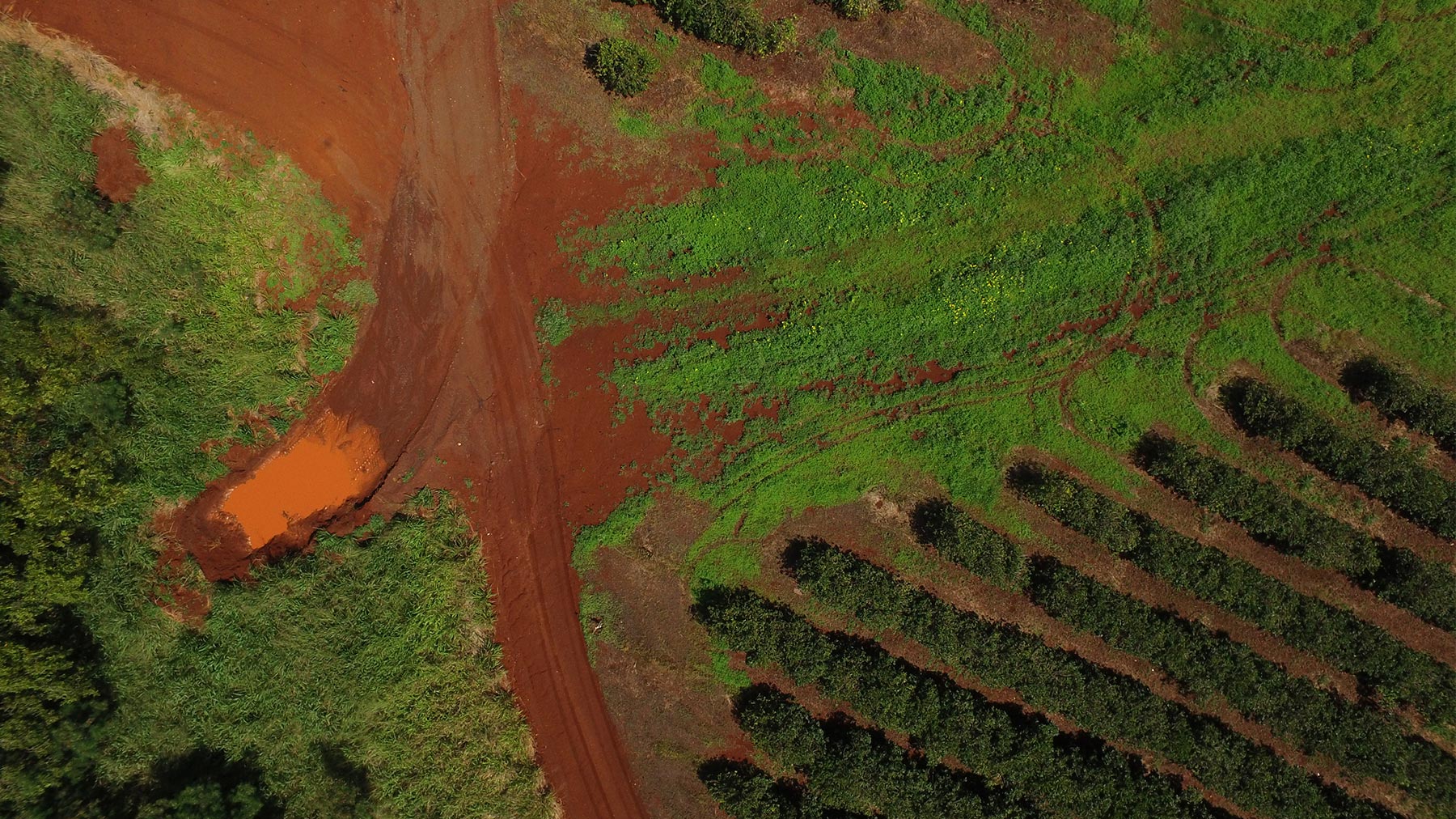
Drone Worry, Beans Happy: How Drone Technology Helps Kauai Coffee Grow a Better Bean
If you can't start your day without a rich, steamy cup of coffee, you aren't alone. Coffee is one of the leading agricultural commodities traded around the world, and global demand for everyone's favorite caffeine-infused bean continues to rise. For coffee growers meeting demand in the face of increasing costs, changing weather patterns and crop-destroying pests is a challenge. Many farmers are tackling these issues head-on with the use of agricultural drone technology and sustainable coffee farming practices.

Eye in the Sky
Coffee growers around the world are turning to unmanned aerial vehicles (UAVs), more commonly known as drones, to monitor crops. This technology can help farmers collect information and make data-driven decisions that keep yield high and costs low. Kauai Coffee is the largest coffee farm in the United States and has been using drone technology to monitor more than 4 million coffee trees on 3,100 acres since 2017. At first, Kauai Coffee used drones as a tool to gather information about tree health and missing or damaged infrastructure. "
We are one of the largest drip-irrigated coffee farms in the world with more than 2,500 miles of line used to irrigate and fertilize our trees," said Fred Cowell, General Manager of Kauai Coffee and licensed drone pilot. "If one of our drip lines is cut or damaged by wild pigs, we have hundreds if not thousands of trees that could suffer from lack of water and nutrition. Our team can't walk and inspect the 3,100 acres of the farm every day, but from the air, we can spot damage or stress on our trees in minutes.

Learning to Fly and Store Drone Data
Fred is an experienced drone pilot and uses a large quadcopter to gather photo and video data of orchard operations. He can survey up to 100 acres of the farm per day, but it hasn't always been easy to gather, store, and use the data collected. "When we began using drone technology to monitor crops, we were fortunate to have an intern, James Thesken, work with us.
He was partially funded through NASA's Space Grant Consortium and helped us test our field mapping techniques and develop a system for storing large amounts of digital image data," said Fred. Even with testing and data storage solutions in place, learning how to use the technology and data didn't come without challenges. "Unfortunately, in our first year we had a GPS malfunction with one of our drones and we lost it when it flew out to sea on its own,' he continued.

Drone Technology and Sustainable Farming
In addition to monitoring infrastructure, tree health, and orchard activity, Kauai Coffee is committed to sustainable farming practices and is experimenting with using drone footage to measure cover crop health and compost inventory. "We produce nearly 4 million pounds of compost from coffee cherry pulp and tree trimmings every year," said Fred.
"That compost is put back into the land as a soil nutrient and helps to retain moisture, reduce watering, and herbicide use on the farm. Using the drone, we can perform a landform analysis of the compost pile to estimate its volume and calculate how many acres of the farm we can cover," he shared. One sustainability goal Fred hopes to accomplish with the help of drone technology is to implement an integrated system of thermal sensors that will allow Kauai Coffee to monitor the surface temperature of the soil and detect thermophilic heating created in the compost pile as it cures.

Using Drones to Make A Virtual Coffee Connection
While drone technology is helping Kauai Coffee accomplish sustainability goals and monitor important agricultural data, it's also proving to be a fun and exciting way to engage with farm visitors and customers around the world. In addition to monitoring crops, Fred shoots 360-degree videos with the drone and uses them to create a virtual tour experience for customers who can't visit the Kauai Coffee farm in person.
"I think one of the most exciting possibilities for the use of drone technology in coffee is the opportunity to connect customers to what is going on in our fields in real-time," he said. "People want to know where their food comes from and how it is handled. I like to imagine a day where you could scan your bag of Kauai Coffee with your smartphone from the grocery store aisle and be virtually transported to our farm for a live look at what is happening, where your coffee came from and who made it for you," Fred remarked.
From farming to processing, roasting to brewing, coffee and technology have been a perfect pair since the beverage was invented. Looking ahead, drone use in coffee production will continue to evolve, and the next wave of smart technology from artificial intelligence to infrared imaging and virtual experiences will shape how we drink and enjoy coffee in the future.







